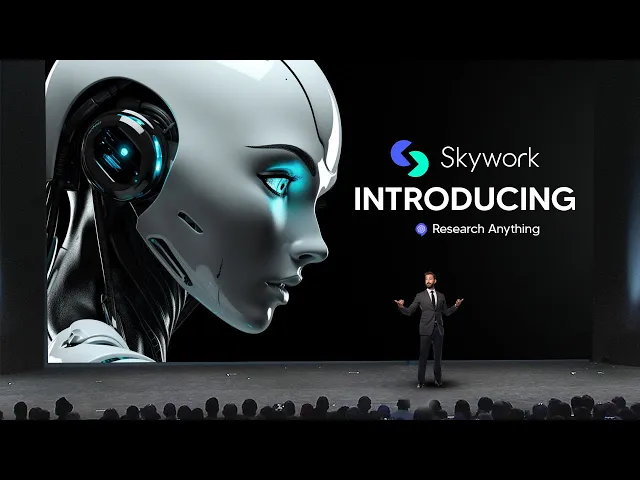This New AI Tool DESTROYS Manus, Genspark And Chatgpt

Dragon AI transcends chatbots for businesses
In the ever-accelerating race for AI dominance, a compelling new player has entered the field. Dragon AI has emerged as a formidable challenger to established services like Manus AI, GenSpark, and even the ubiquitous ChatGPT. What makes this tool particularly intriguing isn't just its technical capabilities, but how it fundamentally reimagines what AI assistants can be for business users who need more than just another chatbot.
Key Insights
-
Dragon AI differentiates itself through a hybrid approach that combines traditional chatbot functionality with a powerful agent system that can execute tasks autonomously across integrated services
-
Task workflows become seamlessly automated as Dragon AI can manage complex operations like importing data, analyzing spreadsheets, and generating visualizations without constant human oversight
-
The platform's built-in tools ecosystem eliminates the need for separate plugins or extensions, offering a cohesive environment where the AI can access and manipulate multiple data sources and services
-
Cost efficiency comes through thoughtful design – Dragon AI requires significantly fewer tokens to accomplish the same tasks as competitors, offering substantial savings for businesses with high-volume AI usage
Why This Changes the Game
The most profound insight from examining Dragon AI is how it fundamentally shifts our understanding of AI assistants from conversational tools to operational executors. While most businesses have grown accustomed to AI that requires precise prompting and constant guidance, Dragon AI operates with a remarkable degree of autonomy that could transform workflows across industries.
This matters because the business world has reached an inflection point with traditional AI chatbots. The initial novelty has worn off, and organizations are now demanding measurable ROI from their AI investments. Dragon AI addresses this by eliminating the productivity tax we've accepted with other AI systems—the constant back-and-forth, the need to verify and guide each step, the fragmentation between tools. By operating as a true agent rather than just a conversational interface, it promises to deliver the efficiency gains that many businesses found elusive with first-generation AI assistants.
Beyond the Video: Deeper Implications
What the video doesn't fully explore is how this agent-based approach might reshape organizational structures. With systems like Dragon AI, we're potentially looking at a fundamental realignment of
Recent Videos
How To Earn MONEY With Images (No Bullsh*t)
Smart earnings from your image collection In today's digital economy, passive income streams have become increasingly accessible to creators with various skill sets. A recent YouTube video cuts through the hype to explore legitimate ways photographers, designers, and even casual smartphone users can monetize their image collections. The strategies outlined don't rely on unrealistic promises or complicated schemes—instead, they focus on established marketplaces with proven revenue potential for image creators. Key Points Stock photography platforms like Shutterstock, Adobe Stock, and Getty Images remain viable income sources when you understand their specific requirements and optimize your submissions accordingly. Specialized marketplaces focusing...
Oct 3, 2025New SHAPE SHIFTING AI Robot Is Freaking People Out
Liquid robots will change everything In the quiet labs of Carnegie Mellon University, scientists have created something that feels plucked from science fiction—a magnetic slime robot that can transform between liquid and solid states, slipping through tight spaces before reassembling on the other side. This technology, showcased in a recent YouTube video, represents a significant leap beyond traditional robotics into a realm where machines mimic not just animal movements, but their fundamental physical properties. While the internet might be buzzing with dystopian concerns about "shape-shifting terminators," the reality offers far more promising applications that could revolutionize medicine, rescue operations, and...
Oct 3, 2025How To Do Homeless AI Tiktok Trend (Tiktok Homeless AI Tutorial)
AI homeless trend raises ethical concerns In an era where social media trends evolve faster than we can comprehend them, TikTok's "homeless AI" trend has sparked both creative engagement and serious ethical questions. The trend, which involves using AI to transform ordinary photos into images depicting homelessness, has rapidly gained traction across the platform, with creators eagerly jumping on board to showcase their digital transformations. While the technical process is relatively straightforward, the implications of digitally "becoming homeless" for entertainment deserve careful consideration. The video tutorial provides a step-by-step guide on creating these AI-generated images, explaining how users can transform...
